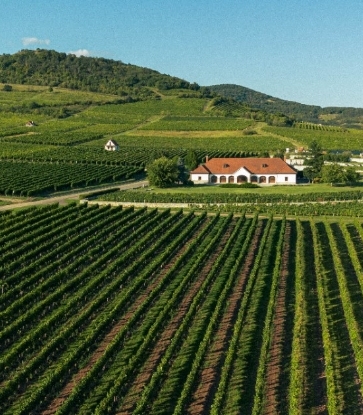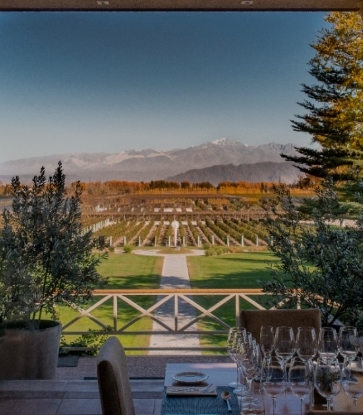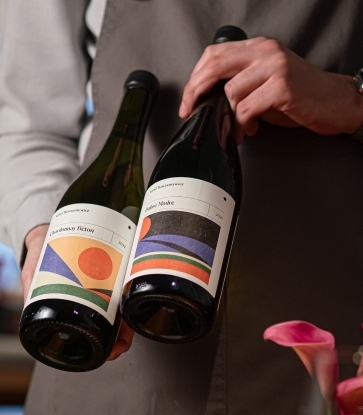Cracking open a cold beer at a backyard barbecue is a great American tradition. But now it's time to put down the bottle opener and pick up the corkscrew, because wine works just as well—if not better—with cookout classics. We chatted with three sommeliers—Patrick Hymer, wine director of Entente in Chicago; Candace Olsen, head sommelier of Aureole in New York City; and Jordi Paronella, Spanish lead sommelier for Jaleo in Washington, D.C.—to get their primo picks for your next summertime shindig.
Whether you're simply grilling burgers, making saucy barbecue ribs or snacking on potato chips while the rest of the meal is prepared, here are some wine recommendations for what to drink with each.
Burgers
Beaujolais Gamay
"It's packed with bright acid and peppery notes to cut through the richness while holding up well to the pickled components and condiments," says Hymer.
Gran Reserva Rioja
"It has an earthiness, leatheriness, and a ton of tobacco tones that go well with a burger," says Olsen.
Canary Islands Rosé
"Pick a pale, medium-bodied rosé from the islands," says Paronella. "They have a smokiness from the volcanic soil the grapes are grown in, which pair well with the meat. And the bright acidity and red fruit notes slice through the richness."
Grilled Sausage
German Riesling Kabinett
"It's a fruity wine, but not a dessert wine by any means," says Hymer. "It will be ripe in acid, bright and refreshing, which will clean the palate off and freshen you right up. Plus, the sweetness will temper any spiciness."
Grüner Veltliner
"There's wonderful acidity and minerality, white pepper and green notes, which makes it great for savory pairings," says Olsen, "but it's still dry with a fuller mouthfeel."
Godello
"The smokiness and butteriness will pair well with the flavors in the sausages," says Paronella.
Pork Ribs
Etna Rosso
"It's a coastal wine with a lot of acidity, light to medium body, low alcohol and smoky tones," says Hymer, "so it will balance any barbecue sauce and match up with the smokiness."
Châteauneuf-du-Pape
"The red fruit—strawberry and cherry—are ripe and a touch jammy, but the wine still has tannin structure and white pepper notes," says Olsen. "It's still fresh and has acidity, so it will go well with saucy ribs."
Vegetable Skewers
Loire Valley Cabernet Franc
"They're packed with funkier vegetal tones that match the skewers," says Hymer.
Verdejo
"You going to get all these mineral tones, a medium body and plenty of acidity," says Paronella. "Notes of fennel, tomato leaves and greens will pair well with the vegetables."
Potato Chips
Muscadet
"Typically it's paired with oysters because there's a naturally brininess," says Hymer. "It has a cereal grain sensibility and it's always salty, so it would go well with chips."
Tuscan Vin Santo
"Featuring notes of salty hazelnuts, it would be over the top rich and delicious," says Olsen.
Easy Drinking Options for the Whole Barbecue
Vinho Verde
"The cheaper, the better," says Hymer. "Lightly effervescent, low alcohol and fresh tasting, it'll help you chill out, while not getting you too wasted."
South African Cinsaut
"It's slightly sweet, full of red and purple fruits and very light," says Olsen. "You don't even know you're drinking it."
Cava
"Get a reserva," recommends Paronella. "It'll have more creaminess and toastiness, but still have floral notes along with white and yellow fruit flavors. It's crisp and vibrant, perfect for a hot summer day."





















